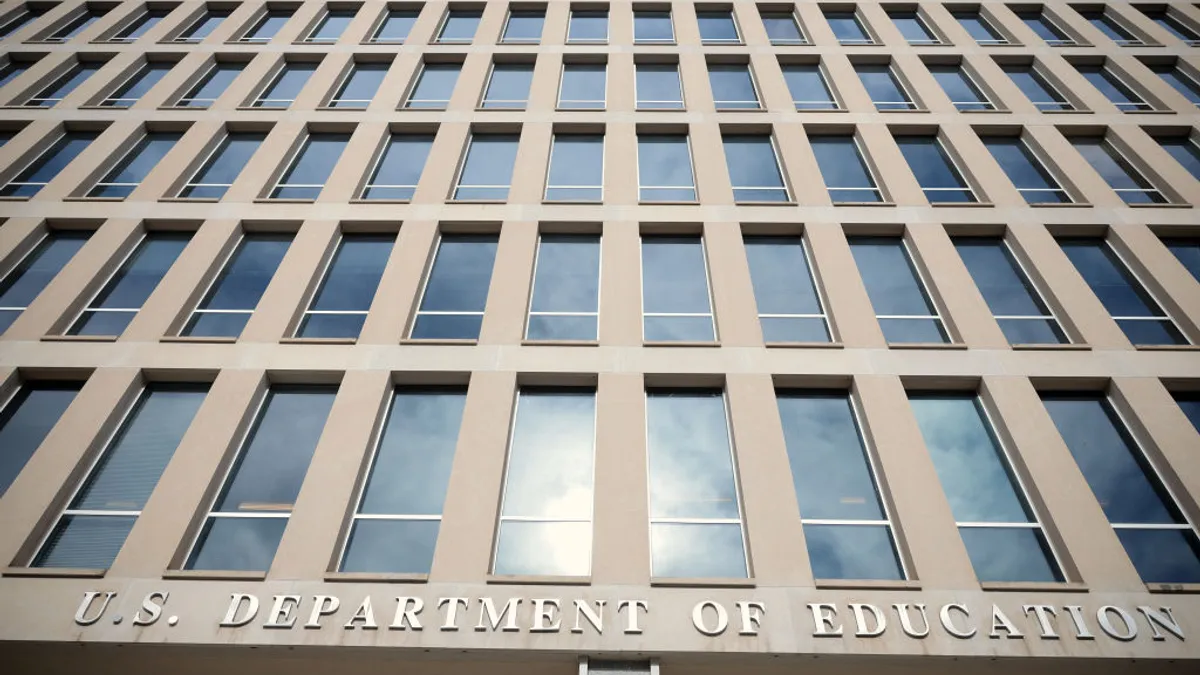Dive Brief:
-
More than half of college enrollment officers said in a recent survey they expect the pandemic to significantly affect how they build their applicant pools going forward.
-
The National Association for College Admission Counseling, in conjunction with software company Salesforce, surveyed nearly 400 admissions officers in August and September to gauge their enrollment strategies and the data used to bolster them.
-
The findings suggest the coronavirus will likely influence colleges' ability to recruit and retain students for years to come.
Dive Insight:
NACAC's survey focused on data sources colleges rely on for recruitment, as well as which pieces of their enrollment process they keep in-house and those they outsource. Retention efforts, for instance, are most frequently conducted by universities, according to the survey. But the search for potential students is handled by outside vendors and institutions about equally.
More than 320 admissions professionals answered a question about how the pandemic has impacted enrollment prospects. Nearly 53% said they anticipated either a "substantial" or "profound" effect on creating applicant pools for fall 2021 and beyond.
College enrollment already looks shaky this fall, with undergraduate counts down by 4% compared to last year, as of late September. Community college enrollment, in particular, took a hit, down by more than 9% year-over-year.
NACAC said in a statement that the virus has stymied the operations of testing providers and other organizations that provide colleges with information about prospective students. "And as a result, the data colleges have traditionally depended on to find right-fit students is no longer available to the same extent," the group wrote.
COVID-19 has deeply affected testing companies, which have estimated vast contingents of students couldn't take the SAT or ACT in the spring or fall. Exam dates keep getting canceled, and a rapidly expanding number of institutions have moved to test-optional policies, albeit some temporarily.
Colleges buy information students share with test companies and use it to target prospective applicants.
To mitigate data deficiencies, colleges are increasing the sources and parameters they use to find applicants, and they are purchasing more student names, the survey found. Out of 209 enrollment officers, about a quarter said nothing is being done to correct the absence of data. Institutions are also trying to "better utilize" data, according to the survey, and look for more opportunities to outsource.
Angel Pérez, NACAC's president, said in the statement "it will be critical" that admissions staff become proficient at interpreting data.












